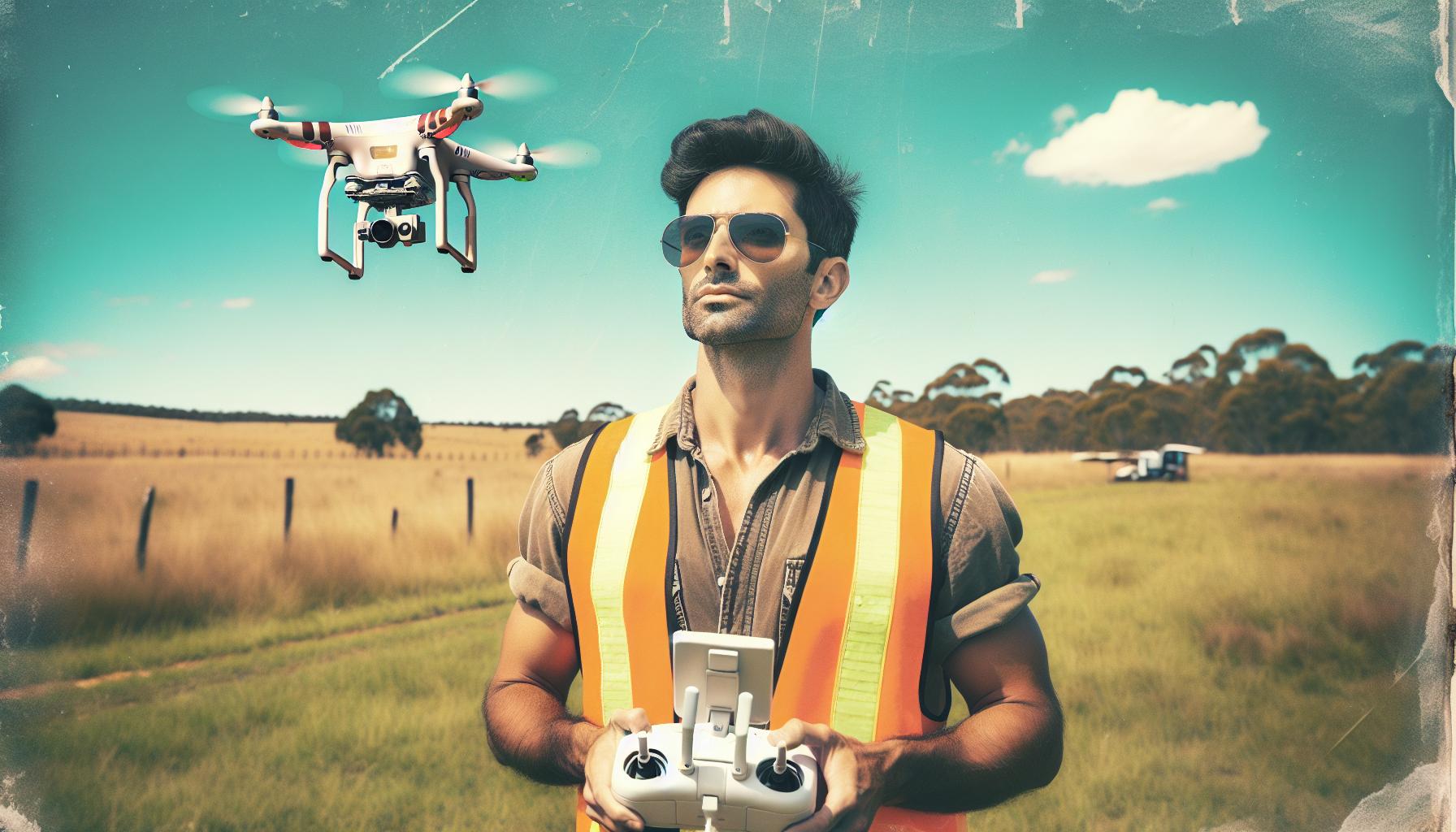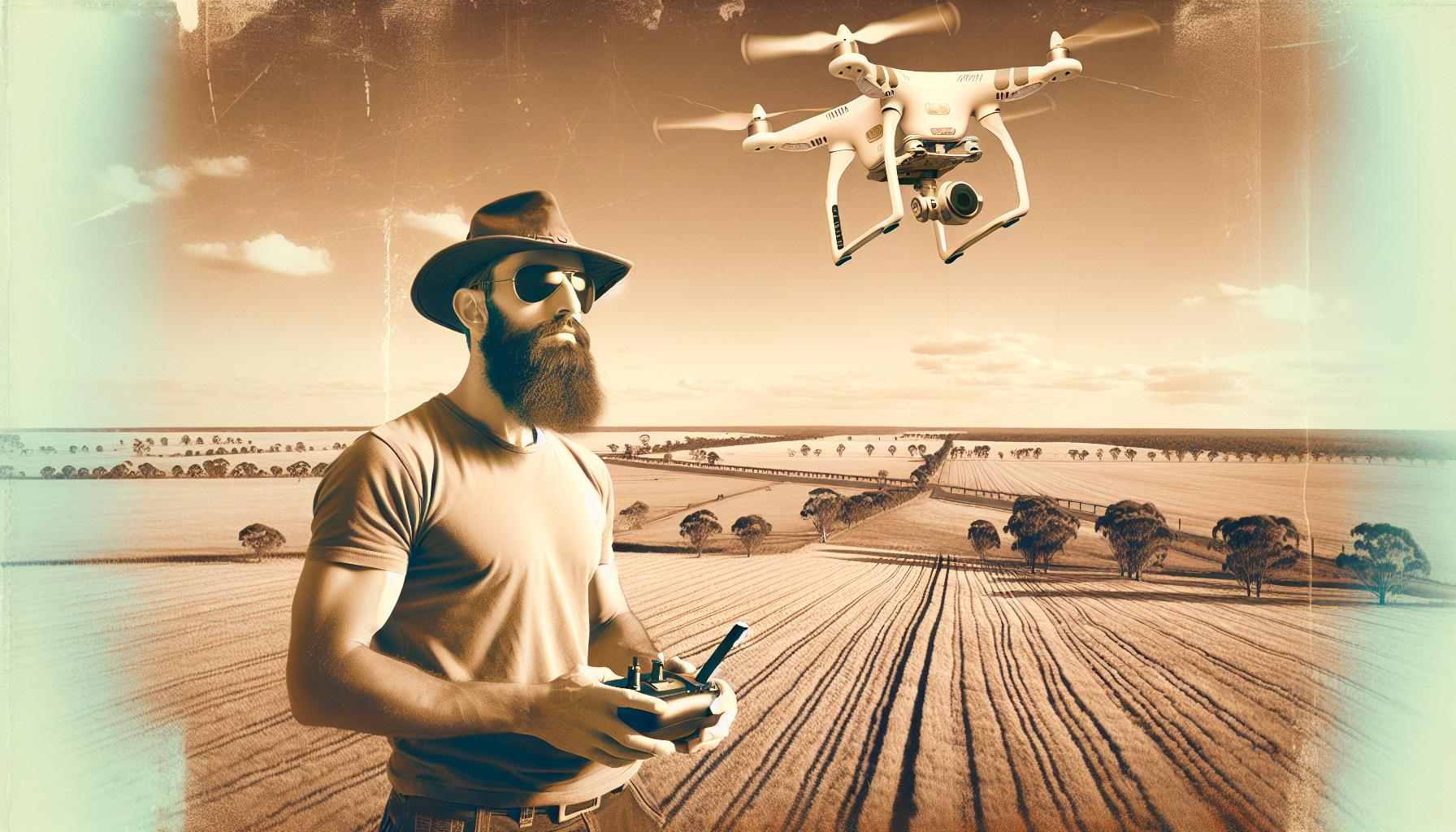In Australia, the rise of drone technology has transformed various industries, from agriculture to filmmaking. However, operating a drone for commercial purposes isn’t as simple as it seems; it requires a valid drone licence. This article explores the reasons behind the necessity of obtaining a drone licence, the legal implications of flying without one, and how proper certification can enhance safety and credibility in commercial operations.
Key Takeaways
- Obtaining a Remote Pilot Licence (RePL) is mandatory for commercial drone operations in Australia to ensure safety and legality.
- The licensing process includes completing an accredited flight training course, passing a written exam, and demonstrating practical flying skills.
- Compliance with the Civil Aviation Safety Authority (CASA) regulations is crucial, as operating without a licence can lead to hefty fines and legal repercussions.
- Licensed drone operators enhance their credibility and professionalism, which can lead to increased business opportunities across various industries.
- Safety training equips pilots with essential knowledge to manage risks and prevent accidents, protecting both the operator and the public.
- Operating drones without a licence risks insurance complications and can damage professional reputation, making compliance integral to sustainable business practices.
Overview of Drone Licensing in Australia
Drone licensing in Australia is governed by the Civil Aviation Safety Authority (CASA), the regulatory body responsible for ensuring aviation safety. To operate a drone for commercial purposes, individuals must obtain a Remote Pilot Licence (RePL), which confirms their knowledge and ability to fly drones safely.
Obtaining a RePL involves completing a flight training course accredited by CASA, covering topics such as airspace rules, safety protocols, and aircraft operations. Candidates must also pass both a written examination and a practical flight assessment to demonstrate their skills.
In addition to the RePL, commercial drone operators need to register their drones with CASA if they weigh more than 250 grams. Operators must also adhere to specific operational guidelines, including maintaining visual line of sight and avoiding restricted airspace. Failure to comply with these regulations can result in penalties, including fines and suspension of flying privileges.
The importance of proper licensing extends beyond legal compliance. Licensed operators portray professionalism and commitment to safety, enhancing their credibility in the marketplace. This credibility can lead to increased opportunities in various industries, such as agriculture, real estate, and media production, where licensed drone services are often preferred.
Importance of a Drone Licence

A drone licence is crucial for anyone involved in commercial drone operations in Australia. It ensures compliance with legal standards and fosters a safer operating environment.
Legal Requirements
In Australia, the Civil Aviation Safety Authority (CASA) mandates a Remote Pilot Licence (RePL) for commercial drone pilots. Individuals must complete an accredited flight training course, pass a rigorous written examination, and demonstrate practical flying skills. Furthermore, operators must register drones over 250 grams and adhere to specific operational guidelines, including restrictions on flying near people and built-up areas. Non-compliance can result in substantial fines and legal repercussions, impacting business viability.
Safety Considerations
Safety remains a priority in commercial drone operations. A drone licence equips pilots with essential knowledge about airspace regulations, risk management, and emergency procedures. Licensed pilots are trained to assess weather conditions and avoid potential hazards, thereby minimising accidents. This training not only protects the pilot but also safeguards the public and property. With an emphasis on safety, having a drone licence enhances the credibility of the operator, assuring clients that services are conducted responsibly and professionally.
The Process of Obtaining a Drone Licence
Obtaining a drone licence in Australia involves specific steps governed by the Civil Aviation Safety Authority (CASA). This structured process ensures that individuals possess the necessary skills and knowledge for safe commercial drone operations.
Training and Certification
Training and certification require aspiring drone pilots to complete an accredited flight training course. This course includes both theoretical and practical components, enabling pilots to understand airspace regulations, risk management, and emergency protocols. Following course completion, candidates must pass a written examination, demonstrating their understanding of relevant aviation laws and safe operational practices. Successful candidates acquire a Remote Pilot Licence (RePL), a crucial requirement for commercial drone operation.
Application Steps
The application for a drone licence involves several key steps:
- Complete Training Course: Enrol and complete an accredited flight training course.
- Pass Written Exam: Successfully pass the written examination covering aviation knowledge and regulations.
- Demonstrate Practical Skills: Attend a practical flying skills assessment to showcase operational competency.
- Submit Application: Fill out and submit the application to CASA, including the necessary documentation and fees.
- Register Drone: Register the drone if it weighs over 250 grams, adhering to the registration guidelines provided by CASA.
Following these steps ensures compliance with Australian regulations, ultimately enhancing safety and credibility in commercial drone operations.
Consequences of Operating Without a Licence
Operating a drone commercially without a valid licence in Australia leads to serious legal consequences. Penalties include hefty fines of up to AUD 10,500 for individuals and AUD 52,500 for corporations. Beyond financial repercussions, illegal drone operations can result in the suspension or cancellation of any existing drone certificates, severely impacting professional credibility.
Infringement of airspace regulations can lead to enforcement actions by the Civil Aviation Safety Authority (CASA). This may include investigations that uncover unauthorised flights over populated areas or restricted zones. Such violations not only jeopardise public safety but may also lead to criminal charges, which can carry severe penalties.
Insurance complications arise from operating without a licence. Many insurance policies exclude coverage for incidents that occur during illegal operations. This lack of protection poses a significant risk to both the operator and any parties affected by drone activities.
Adverse effects on business operations become evident when drones are operated without a licence. Clients may become reluctant to engage with unlicensed operators, highlighting a lack of professionalism and safety. Building trust with potential clients requires demonstrating compliance with legal standards, which is unattainable without a valid drone licence.
The consequences of operating without a drone licence in Australia significantly outweigh any potential short-term gains. Adhering to regulatory requirements not only ensures legal compliance but also fosters safer operational practices, enhancing overall business viability.
Conclusion
Obtaining a drone licence for commercial operations in Australia is not just a legal requirement; it’s a commitment to safety and professionalism. By adhering to CASA regulations, operators not only protect themselves from significant legal repercussions but also enhance their credibility in a competitive market.
The structured process of acquiring a licence equips pilots with vital skills and knowledge essential for safe drone operation. This training ensures that they can navigate complex airspace regulations and manage potential risks effectively.
Ultimately, investing the time and resources into becoming a licensed drone operator pays off in the long run, fostering trust with clients and safeguarding the future of their business.
Frequently Asked Questions
What is the role of drone technology in Australian industries?
Drone technology significantly impacts various Australian industries, particularly in agriculture and filmmaking. It enhances efficiency, provides clearer visuals, and enables precise data collection, making operations more effective.
Do I need a licence to operate a drone commercially in Australia?
Yes, you must obtain a Remote Pilot Licence (RePL) to operate a drone commercially in Australia. This ensures compliance with regulatory requirements set by the Civil Aviation Safety Authority (CASA).
What are the steps to obtain a drone licence in Australia?
To obtain a drone licence, complete an accredited flight training course, pass a written exam, demonstrate practical flying skills, and submit an application to CASA with the required documentation and fees.
What are the consequences of flying a drone without a licence?
Operating a drone without a valid licence in Australia can result in fines, criminal charges, and possible suspension of existing certificates. It also complicates insurance coverage, exposing operators to significant risks.
How does a drone licence enhance safety?
A drone licence equips pilots with knowledge about airspace regulations, risk management, and emergency procedures. This training helps pilots assess weather conditions and avoid potential hazards, improving overall safety for everyone involved.
Why is having a drone licence important for business credibility?
Having a drone licence enhances an operator’s credibility, assuring clients that services are conducted responsibly and professionally. This can lead to increased trust and potentially more business opportunities.

